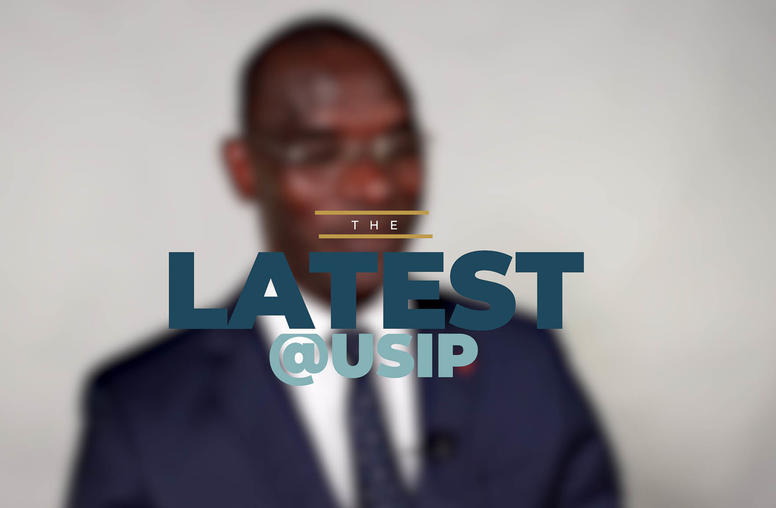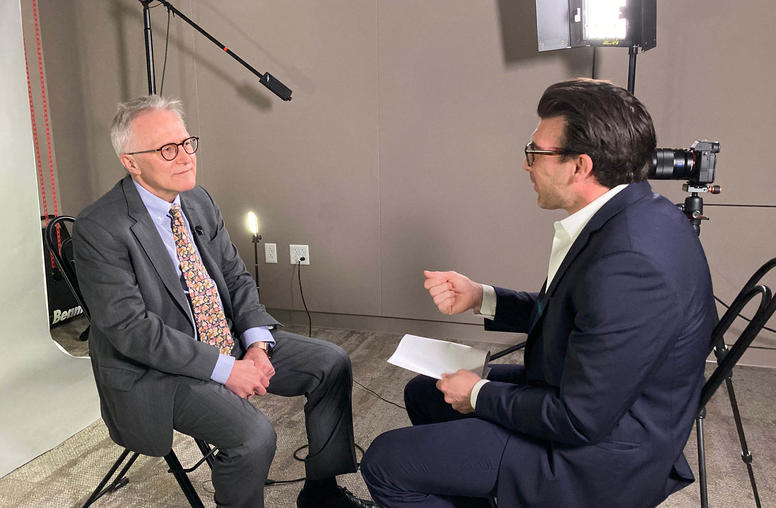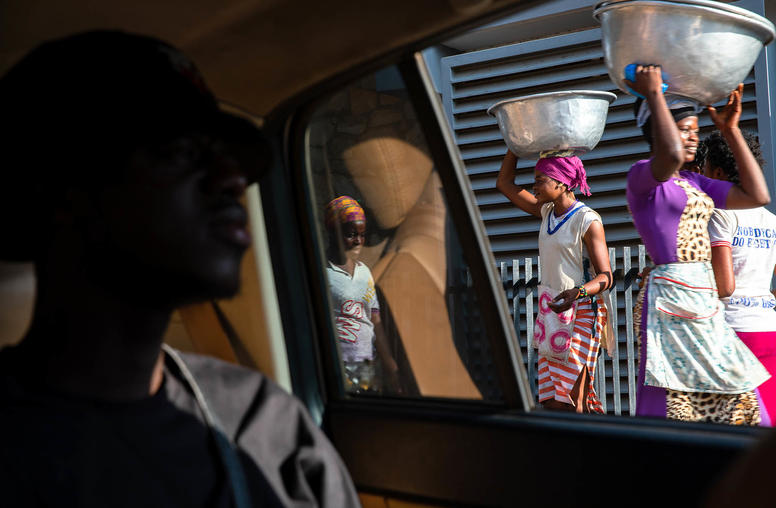Long-term peace in Côte d'Ivoire after Gbagbo?
Almost five months after Ivoirian presidential elections adjudged by African states, African organizations and the United Nations to have been won by Alassane Ouattara, the electoral stalemate has ended with the arrest of Laurent Gbagbo, the former president, who had refused to step down. Many believe that the forthcoming Ouattara administration would be a government of national unity.
Almost five months after Ivoirian presidential elections adjudged by African states, African organizations and the United Nations to have been won by Alassane Ouattara, the electoral stalemate has ended with the arrest of Laurent Gbagbo, the former president, who had refused to step down. Many believe that the forthcoming Ouattara administration would be a government of national unity.
However, forging peace and ensuring stability would be an uphill task as deep national, ethnic, religious and political fissures -- exacerbated by nearly five months of violence -- threaten to tear the country apart. Issues of national identity lie at the heart of the crisis, with the notion of “Ivoirité” – a debate over who is Ivoirian -- being particularly divisive. Southerners have long questioned the nationality of migrant workers (predominantly from the north of the country, but hailing from neighboring states as well) and sought to exclude anyone who could not prove the citizenship of both parents from being Ivoirian or holding public office.
This is problematic in a country where many experts cite that 25 percent of the population emigrated from neighboring states and where most rural births are not recorded. Côte d’Ivoire’s north-south divide also has a long-standing religious dimension (Muslim north v. Christian south) and ethnic roots (a wealthy and predominantly Baoulé south v. the poorer, traditionally pastoralist north). These problems have been exacerbated by the fractious politics of recent years.
Neither the Ouagadougou Political Accord, under whose framework the elections took place, nor United Nations Security Council Resolution 1975, which strengthened the mandate of the Blue Helmets in Côte d’Ivoire by authorizing the use of force to protect civilians under the imminent threat of physical violence and also called for an end to hostilities and the implementation of a political solution endorsed by the African Union, will bring lasting peace to Côte d’Ivoire. While these measures may expedite the resolution of the prolonged political impasse and halt ongoing violence, they do not address the greater challenges of post-conflict reconciliation and rebuilding. Building peace in such an environment will be fraught with tremendous difficulty: it must include processes to engender reconciliation and credible redress of grievances; a tangible and equitable economic peace dividend; and a robust program of disarmament, demobilization, and reintegration (DDR).
A fundamental requirement for building peace in Côte d’Ivoire is the implementation of programs that foster reconciliation. Even if Gbagbo had honored the results of the November 28 run-off presidential election and stepped aside, Ouattara would have experienced difficulty governing. The election results demonstrated a closely divided electorate: 54.1 percent voted for Ouattara, while 45.9 percent voted for Gbagbo. Moreover, the intense postelection violence that left almost 1,000 dead, internally displaced one million people, and sent 100,000 across the border has surely exacerbated existing regional, ethnic, and religious differences. Thus, while the election was meant to repair the divisions between the north and south, it may have accomplished the opposite.
Reconciliation must be country-owned and country-led. National, regional and community leaders must acquire the skills to initiate and sustain efforts to foster inter-group dialogue and craft workable strategies towards the attainment of shared national goals. This would entail creative and culturally-sensitive mechanisms to build trust, modalities to ensure that every constituency has a voice and techniques to work through long-standing differences. Rebuilding has both political and economic dimensions. Politically, all groups should feel included in the process and know that their participation is valued. Côte d’Ivoire’s political space should be expanded beyond the traditional ‘zero sum’ approach. From an economic perspective, conflict-sensitive approaches must be adopted so the majority of Ivoirians enjoy a tangible peace dividend in the immediate term. Specifically, employment creation must be prioritized, vulnerable groups should receive special attention and care must be taken to avoid enabling potential spoilers.
Durable peace in Côte d’Ivoire will also depend on the redress of grievances and injuries resulting from the political violence. Importantly, accounting for war crimes and crimes against humanity must be comprehensive – meaning that both pro-Ouattara and pro-Gbagbo supporters should be investigated for crimes. Thus, the massacres in Duékoué and other western towns, where international aid groups have estimated that hundreds have been killed – possibly by pro-Ouattara forces – as well as crimes committed by pro-Gbagbo forces in Abidjan must be investigated with equal seriousness. In addition, the firms that provided Gbagbo with funds to continue paying the army – in violation of the global financial sanctions imposed last December – should also be investigated. Undertaking a comprehensive investigation increases the credibility of the transitional justice mechanisms; it works to defuse claims by one side or the other that they are being cheated – thus reducing the incentive for reprisals.
Finally, rebuilding Côte d’Ivoire will require a robust DDR program. In the years since the 2007 Ouagadougou Political Accord, Côte d’Ivoire’s failed DDR program has been blamed on lack of funds and lack of political will. Thus, at the time of the elections, the Forces Nouvelles, the rebel army that launched the 2002 civil war, remained intact and in control of northern Côte d’Ivoire and Gbagbo’s Young Patriots remained mobilized and under his control. As such, at the onset of a political dispute, it was easy to mobilize armed supporters and for violence to break out in Côte d’Ivoire. A robust DDR program would not only aim to reduce the number of arms in circulation, but remove the incentive to remain in an armed group by providing viable social and economic opportunities in mainstream society.
Building peace does not require another Security Council resolution. It requires careful planning, effective coordination and the provision of technical assistance (where necessary). Côte d’Ivoire’s rebuilding effort must not be left to chance. Continued fragility in that country could have dire regional and global consequences. The rapidly growing number of refugees and displaced persons could spark a humanitarian catastrophe, endemic insecurity could cause a spike in the proliferation of arms, political instability could make the country vulnerable to extremists and criminal cartels groups, and supply disruptions in the cocoa industry could destabilize global markets (Côte d’Ivoire accounts for half of the world’s cocoa exports).
Peace mediators, trainers and conflict management strategist from organizations like the United States Institute of Peace could play a pivotal role in helping Ivoirians build lasting peace.



